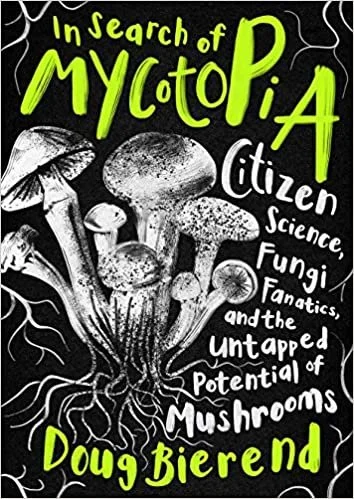“Mycotopia” is a word not found in dictionaries, as yet. “Myco” is derived from the Greek mykes, which means fungus and forms the root of mycology, the study of fungus, and mycophagy, the consumption of mushrooms, and even mycophobia, the fear of mushrooms. But mycotopia is not a thing, but a recent concept created by fungi enthusiasts with a utopian vision of a mushroom-centric world.
This book digs deep into this mushroom craze, introducing readers to the mycophiles, mycologists, mycopreneurs, fungi festivals and fungi farmers behind a fringe movement that aspires to become mainstream.
This social history documenting a unique subculture calls into question how our society decides what defines knowledge and who is an expert. “Mycology is rather unique among the natural sciences for its sizable base of dedicated amateurs throughout the country who regularly go out and document fungi as a part of daily life,” Doug Bierend points out. “Birders are perhaps the closest analogue, and represent a massive community indeed. One advantage of mushrooms, though, is that they don’t require luck or good reflexes to take good pictures of them, or to collect them. Also, the presumed diversity of fungal species dwarfs that of birds; estimates put the total number of bird species at 10,000 to 18,000. That’s fewer than the entirety of named mushrooms, only 144,000 of which have been named.”
